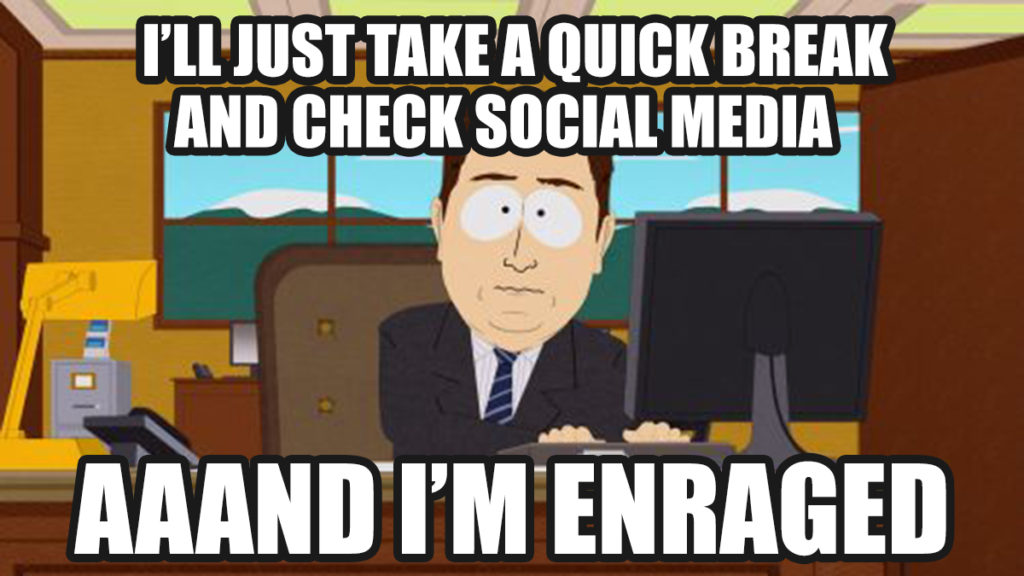Have you ever looked through your social media feeds and come away thinking, “Wow, I’m really glad I did that. I’m refreshed, renewed, and totally not enraged at all”?
Me neither.
The same goes for news more generally. I’ve read several things that have convinced me to (mostly) give up on current events: a blog post by Bryan Caplan (in which he refers readers to Rolf Dobelli’s “Avoid News,”), Dobelli’s book The Art of Thinking Clearly, and Tim Ferriss’s book The Four-Hour Workweek are among them.
Caplan and Dobelli argue that news is to the mind as candy is to the body. Like candy, news is heavily processed for quick consumption and immediate reaction, which is why so much of what you see on TV and read on the internet is so sensationalized. They add that hardly anything we encounter is really, truly relevant to the long arc of history. Dobelli suggests that instead of watching talking heads and reading tabloid-esque sensational newspaper stories, we should instead turn to long-form analytical articles in magazines like the Atlantic or the New Yorker.
News is a strange phenomenon. Something is newsworthy because it is extremely rare and unlikely, but a lot of people get their understanding of what is likely from … reading and watching the news.
Reading and watching the news is more akin to reading Stephen King novels and watching scary movies than it is to studying how the world actually works.”]
Take the supposed crime epidemic that President Trump and newly-approved Attorney General Sessions have emphasized. The actual data tell another story: that the murder rate, for instance, has fallen dramatically since 1991, though it did rise slightly in 2015 compared to 2014.
But data are abstractions, while the picture you saw online this morning — of the face of the guy who was brutally murdered — is extremely vivid and relatable. “If it bleeds, it leads,” indeed.
This principle of the news business is all the more true for stories that prey on parents’ worst nightmares about horrific things happening to their children.
This cuts in all directions. Consider horror stories about parents getting arrested for letting their kids play outside alone or wait in the car unattended. These are tragic, but they’re also rare.
My wife and I each had to visit a public notary for some Very Official Paperwork recently. We left the kids in the car with some snacks and instructions to behave. They weren’t abducted. We weren’t arrested.
The world is a lot more mundane than you would think from reading and watching the news.
Tim Ferriss offers somewhat different counsel from Caplan and Dobelli. He says you’ll pick up on what’s important from the world around you — like headlines you see when you pass newspaper machines or on CNN at the airport — and from what people around you are talking about. This provides you with an opportunity to ask, “What’s new in the world?” and really listen to the answers.
If we’re honest with ourselves, we’re consuming entertainment, not insight, when we keep up with the news. In fact, reading and watching the news is more akin to reading Stephen King novels and watching scary movies than it is to studying how the world actually works. There’s nothing wrong with that — I have an embarrassing affinity for lousy movies about alien invasions and gigantic spiders — but we should be a lot clearer about what we’re doing.



